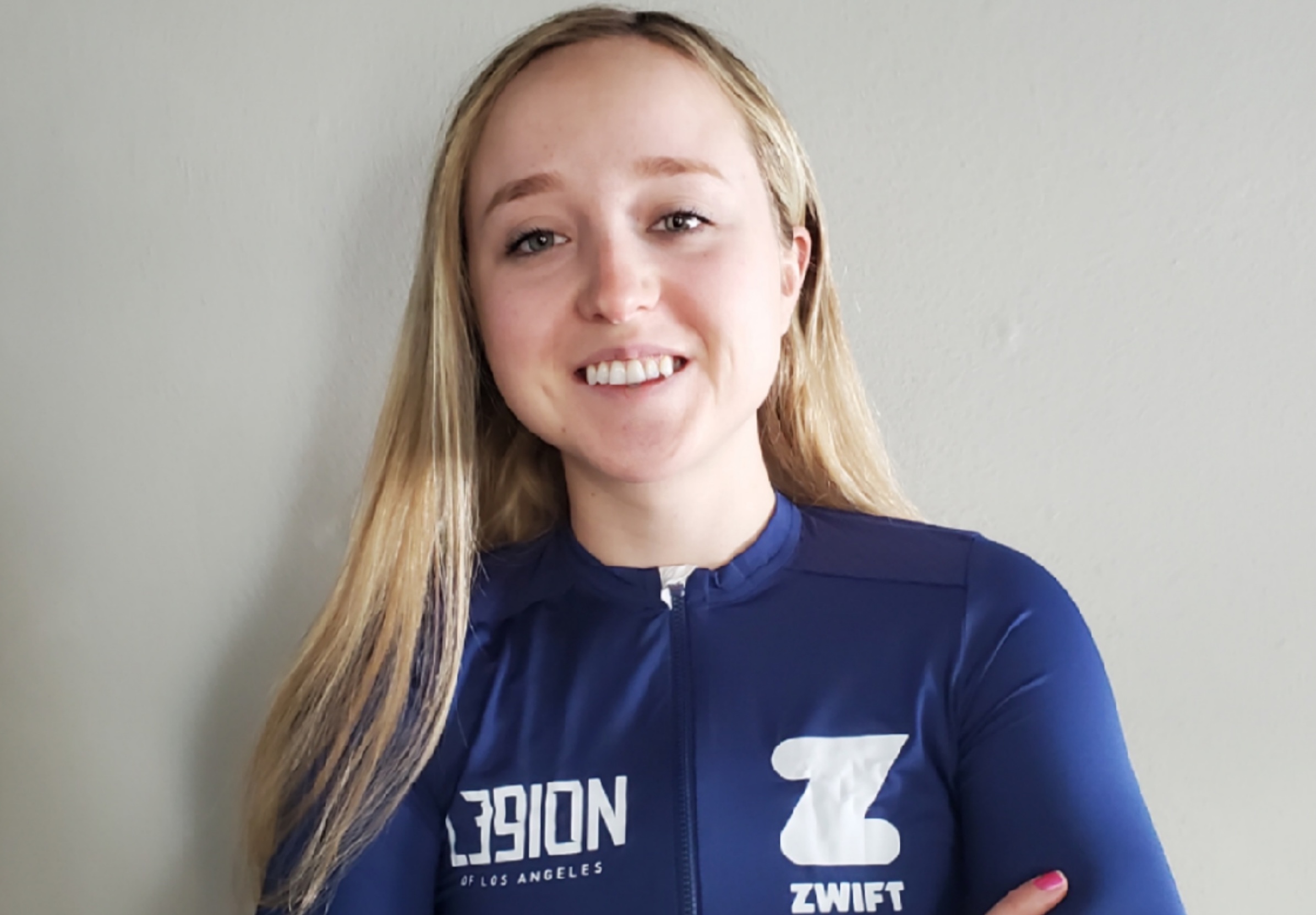Movistar slated at Vuelta a España for racing on after Roglic crash
Team criticised for accelerating away from Jumbo-Visma leader and López on stage 19
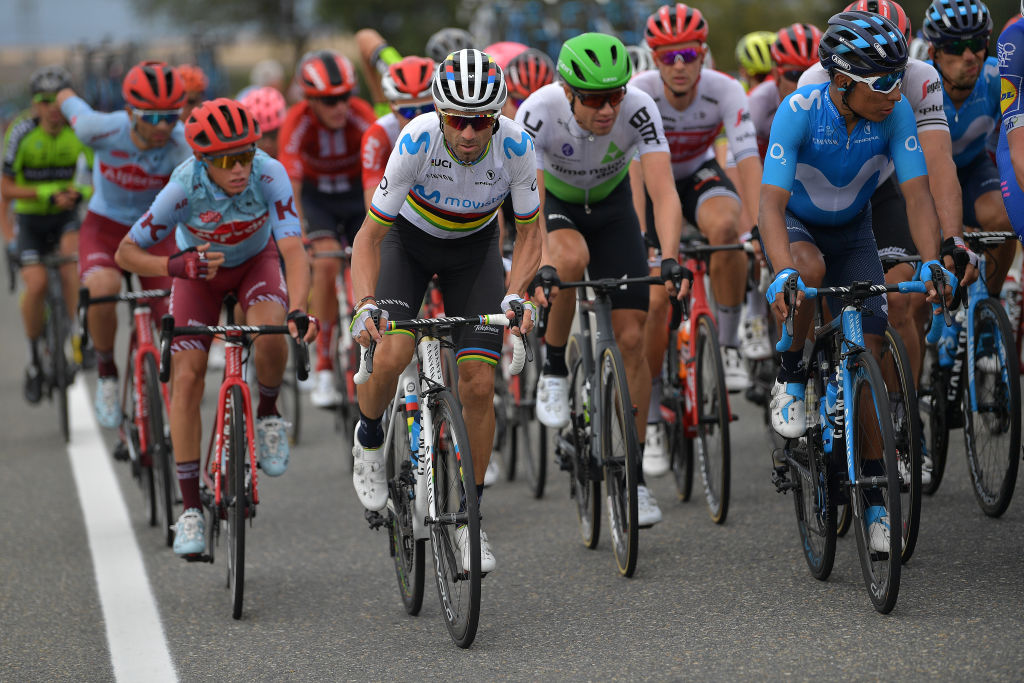
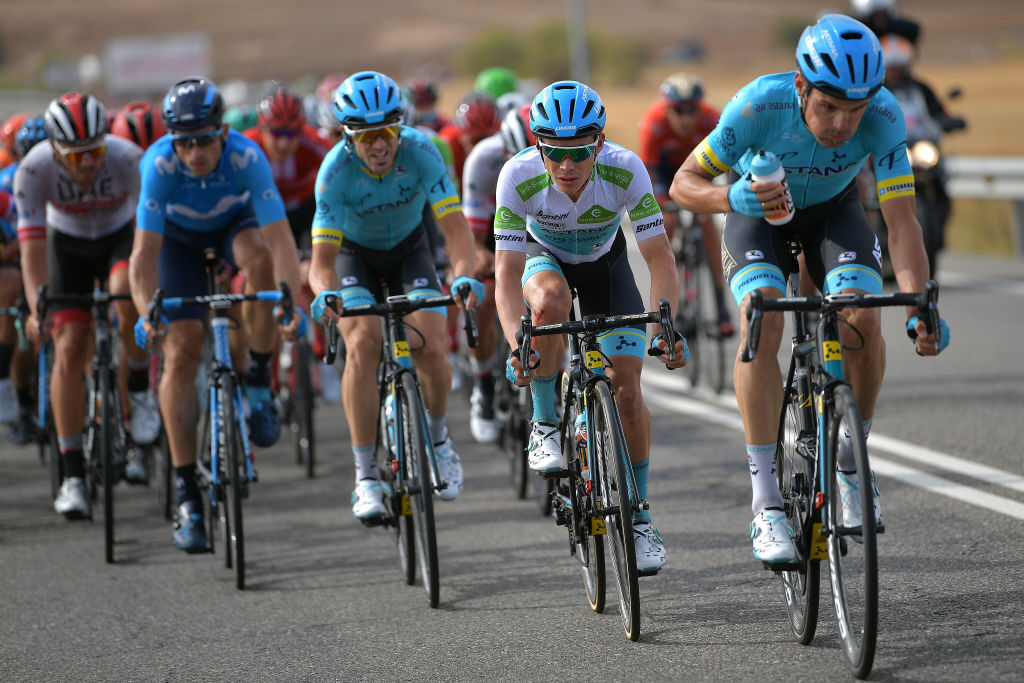
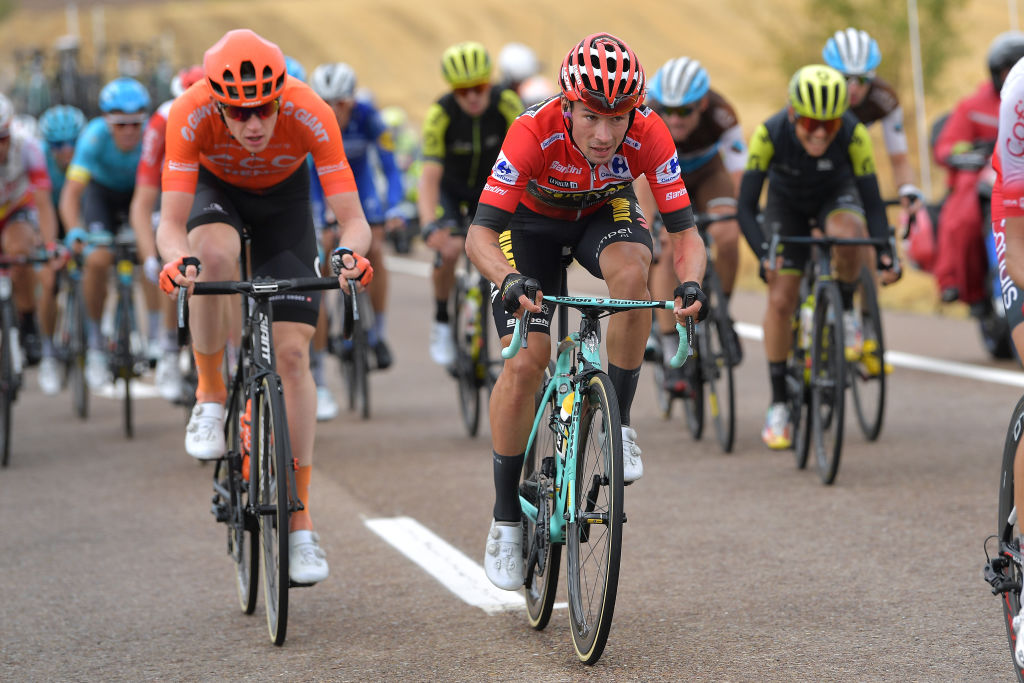
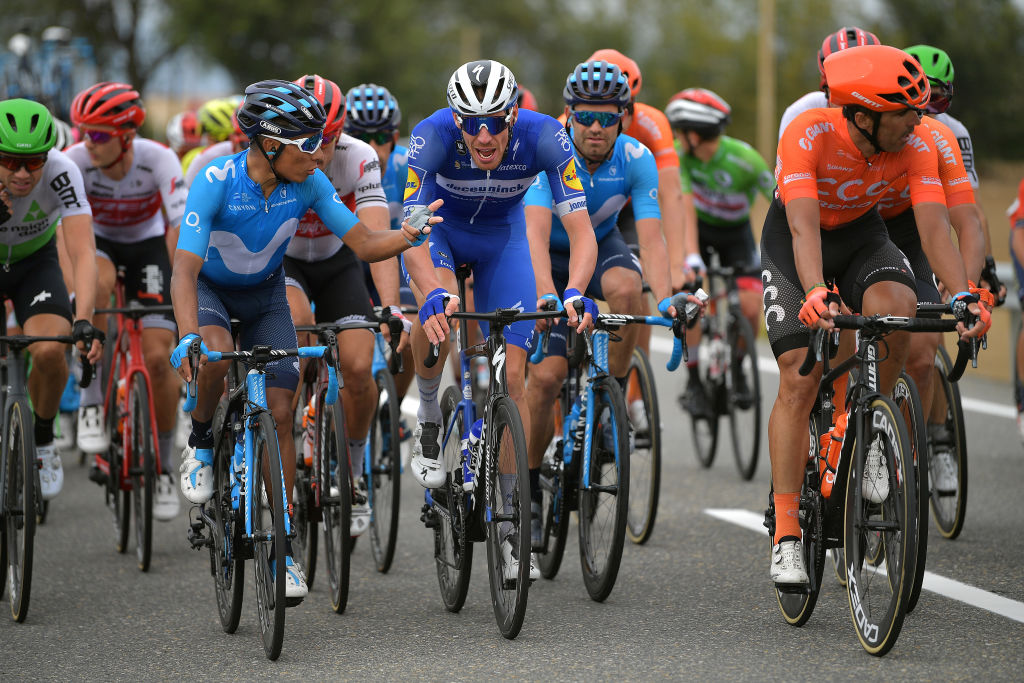
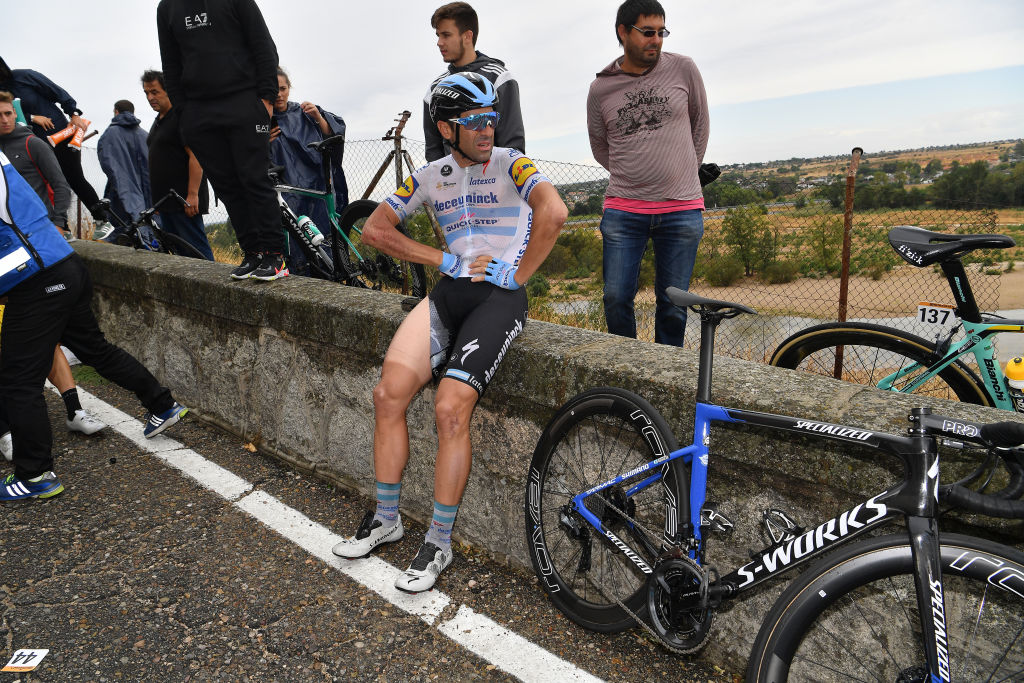
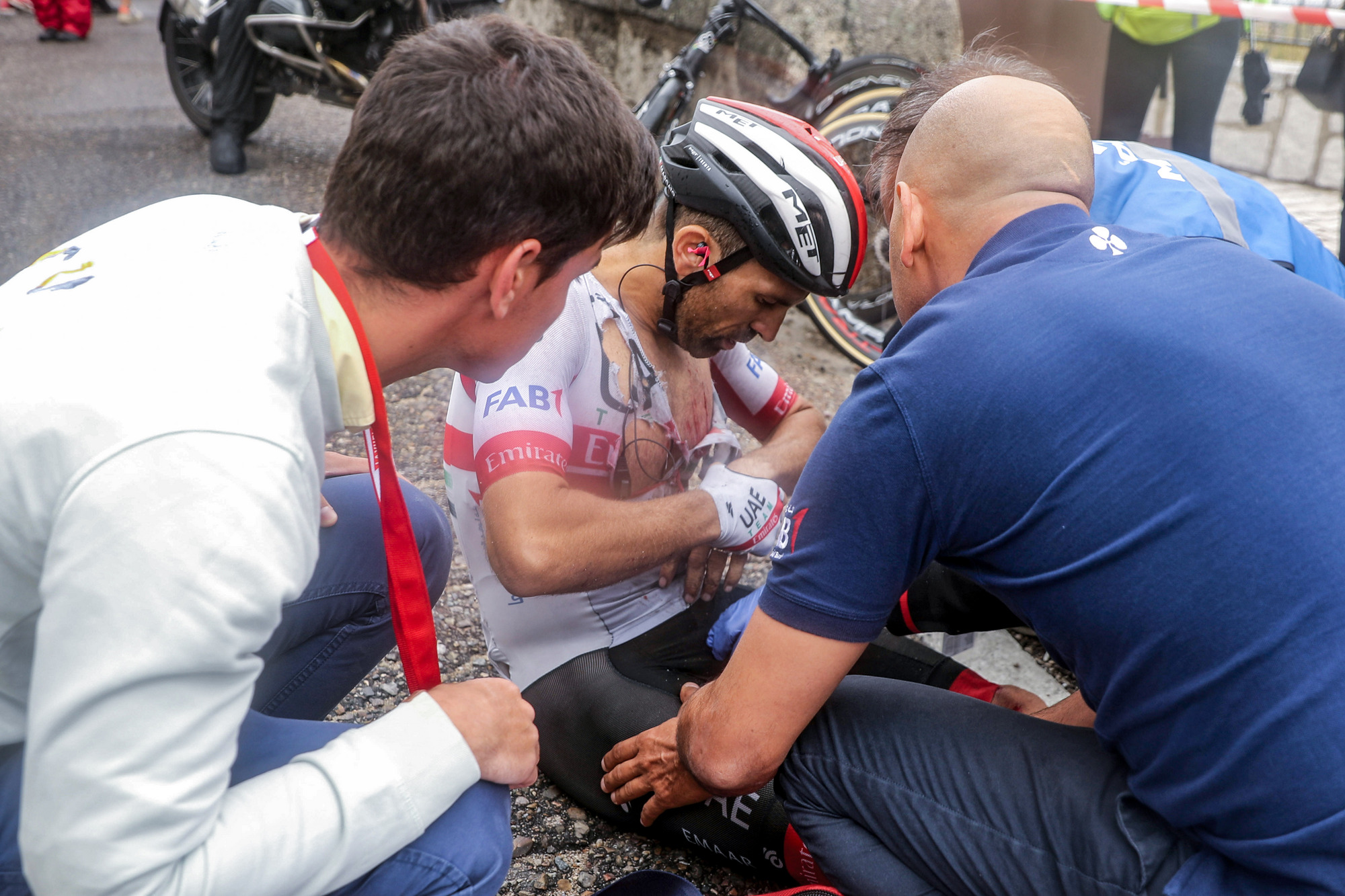
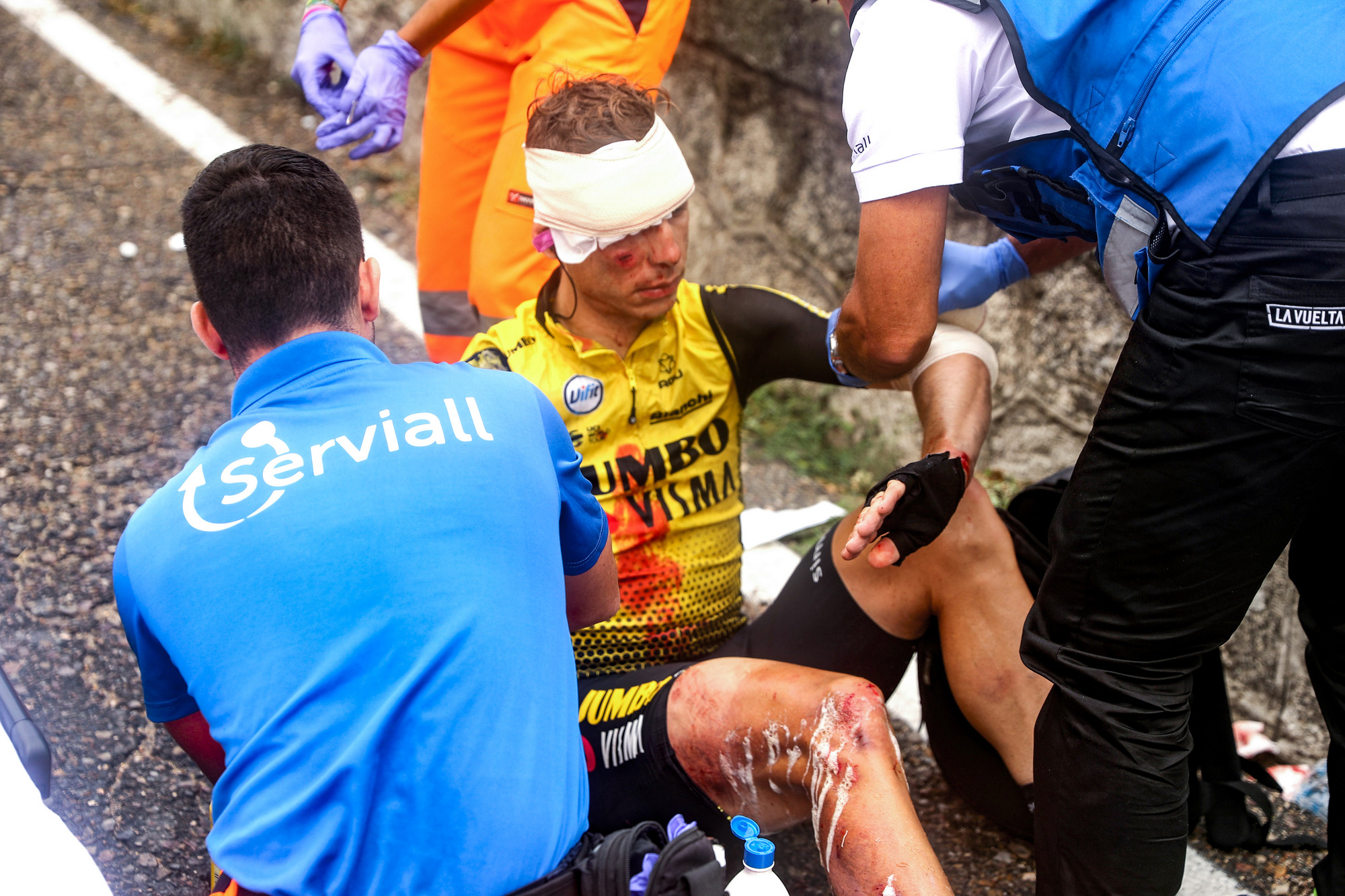
A full-scale controversy erupted on stage 19 of the Vuelta a España after Movistar's GC contenders opted to continue driving the pace at the front after a crash involving race leader Primož Roglič (Jumbo-Visma) and Miguel Ángel López (Astana).
Roglič's teammate Tony Martin was forced to abandon with an eye injury, while Marco Marcato (UAE Team Emirates) also left the race. And although Roglič was apparently unhurt, López, who suffered only minor injuries, later blasted Movistar for their decision to continue racing instead of waiting, as is the usual unwritten race etiquette in these situations.
"I thought it was a very bad thing to do. It showed lack of respect to the leader's jersey, not for the first time," López, fourth overall, said afterwards.
"They're the typical types who make the most of these moments. They always play dumb."
Movistar team manager José Luis Arrieta confirmed to Spanish television that his team had decided to keep working hard at the front, not because of the crash but because they had always planned an attack at that point in the race to try and form an echelon.
"We knew what the descent [where the crash happened] was like, there's a bridge and then there's an open area," he said. "We've been in situations like this with Alejandro [Valverde] in the Tour and Vuelta and nobody has asked why they didn't wait for him.
"We'd planned the move. If you'd looked we were ahead in the previous village and that's all there is to it.
The latest race content, interviews, features, reviews and expert buying guides, direct to your inbox!
"I don't like these situations. We've lost races through crashes. It was our decision to stop when the UCI [commissaires] had said that they were going to draft up the fallen riders from behind."
The crash, which occurred 65km from the finish in Toledo on a fast downhill segment going through a town, saw dozens of riders go down in the pileup. "There was some oil on the road and we went down like dominos," said López's teammate Luis León Sánchez.
"A lot of people were badly messed up and the race doctor was asking for the ambulance to come through. Then some team decided to stomp on the accelerator ahead…"
Sánchez said he later had spoken to the Movistar riders, who said it was the team management who had told them to keep driving.
López's fury: 'What a world champion we have!'
Regardless of who decided what, López's fury at Movistar, who worked on the front with Marc Soler, José Joaquín Rojas and Nelson Oliveira, knew no limits.
"It's always the same stupid people who do this. Maybe one day they'll win a race launching a straight attack," he blasted. As for the commissaires in-race decision to bring the riders back up behind the cars, López said, "I didn't know about it at the time… It's a good decision."
But then he launched another tirade against Movistar, saying, "These really stupid actions are what the world champion's team does, that's what we're dealing with. What a world champion we have!"
After around 15 kilometres of pushing, Movistar stopped working in the front group, and the bunch regrouped behind the breakaway. But the controversy rumbled on until long after Rémi Cavagna (Deceuninck-QuickStep) had won the Belgian team's fourth stage of the Vuelta.
Others who criticised Movistar's attitude included former rival Joaquim Rodríguez, who called it "shameful," and Mitchelton-Scott's Luka Mezgec, who tweeted that accelerating when the riders were down was "a filthy tactic."
At the finish, Movistar leader Alejandro Valverde refused to talk at all, powering past reporters and only stopping briefly to get a jacket from a team soigneur before heading straight to the Movistar bus, a kilometre outside Toledo city centre. He pointedly ignored one request by a top Spanish journalist to speak, and rode away without a word.
Roglič and Pogačar remain diplomatic
Jumbo-Visma refused to enter in the blame game, with Primož Roglič saying he had to "review the television images first" and Addy Engels, the team's sports director, refusing to talk to both Spanish television during the race and journalists waiting at the finish.
Tadej Pogačar (UAE Team Emirates), fifth overall, managed to come through the crash unscathed said later that the polemics of the stage were unexpected.
"[I] expected the stage to be quiet," he said. "But we were all fighting for position through the city and there was a big crash.
"For sure Movistar weren't strong enough, they saw pretty soon they had made a mistake, and then we waited for everybody, it started over. That was the right decision, to wait for the guys who crashed."
All but invisible under a torrent of South American journalists in search of a quote, Movistar's Nairo Quintana confirmed Sánchez's comments that it had been the decision of the Movistar directeur sportifs decision to step on the gas.
"We had planned to accelerate in that point," he said. "But it was our decision to stop. The directors have the last word, in any case."
As if the Movistar manoeuvres were not enough, a second controversy within a controversy emerged as Arrieta also slated the UCI for their decision to draft the riders back up to the main group of breakaways.
"If that's cycling… then fantastic. I don't share that attitude, and I've told the riders to stop, but other times we've done that and the UCI haven't taken any decision [to bring the riders back]," he reasoned.
Movistar had lived through a similar – though not identical – situation in 2012 whilst Valverde was leading the Vuelta, when Sky formed an echelon just as he crashed.
Back then, Valverde fumed at what he called a "lack of respect" and even went over to Sky's bus afterwards to demand – politely, let it be said – explanations. The British team insisted repeatedly that they had had no idea that Valverde had crashed at that point and would never have driven on had they known it.
Regardless of whom was in the right or wrong, the dust surrounding the ensuing scandal seven years ago took a long time to settle. And this time round it seems the controversy of Toledo will not be resolved quickly, either.
No se quejan, no ponen excusas… siempre cumpliendo con su deber en carrera, motivo de peso suficiente para levantarte y seguir. Bravo 👏🏻👏🏻.#Lavuelta19 @lavuelta pic.twitter.com/3bHwloHqRNSeptember 13, 2019
Alasdair Fotheringham has been reporting on cycling since 1991. He has covered every Tour de France since 1992 bar one, as well as numerous other bike races of all shapes and sizes, ranging from the Olympic Games in 2008 to the now sadly defunct Subida a Urkiola hill climb in Spain. As well as working for Cyclingnews, he has also written for The Independent, The Guardian, ProCycling, The Express and Reuters.

